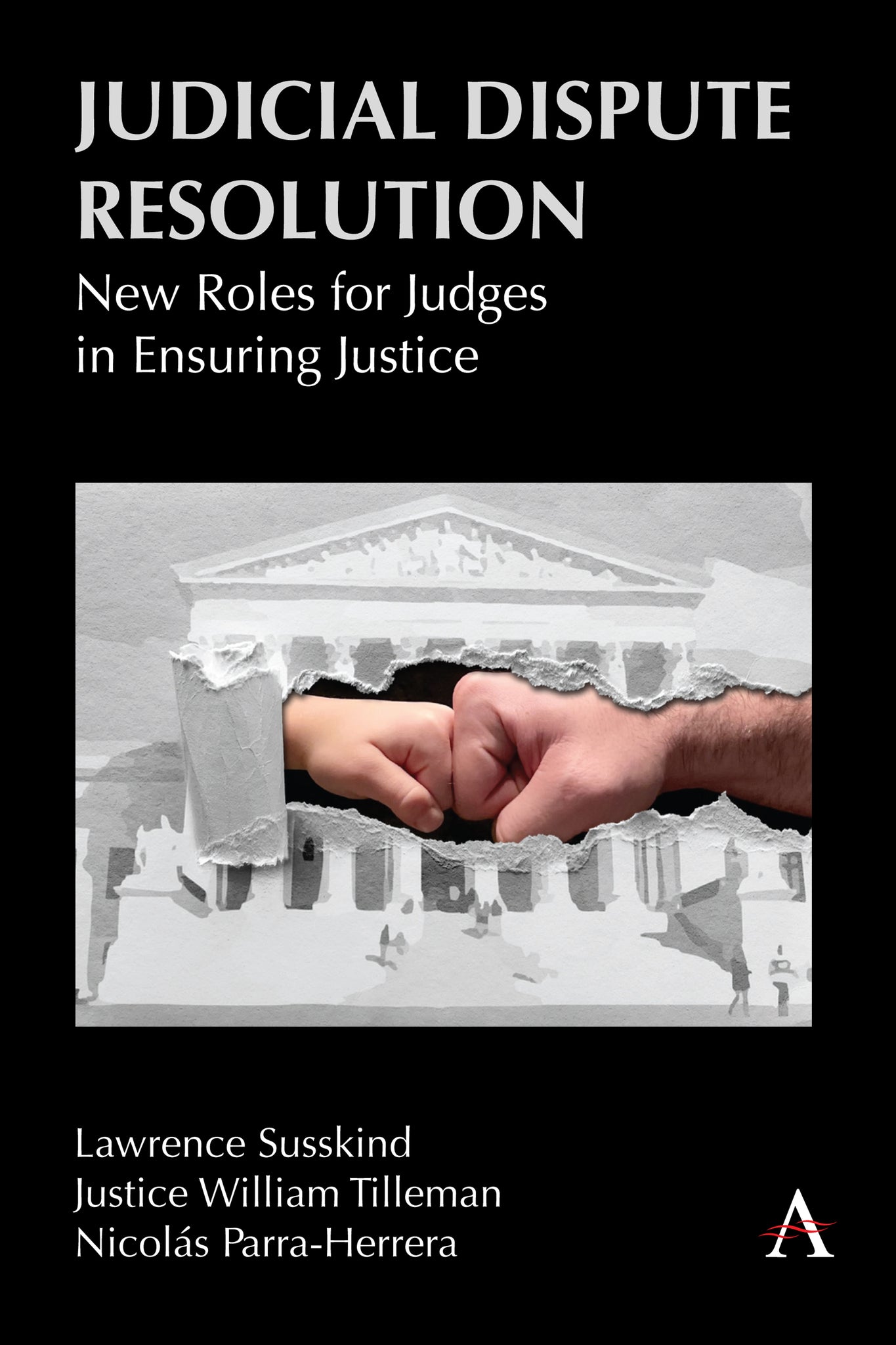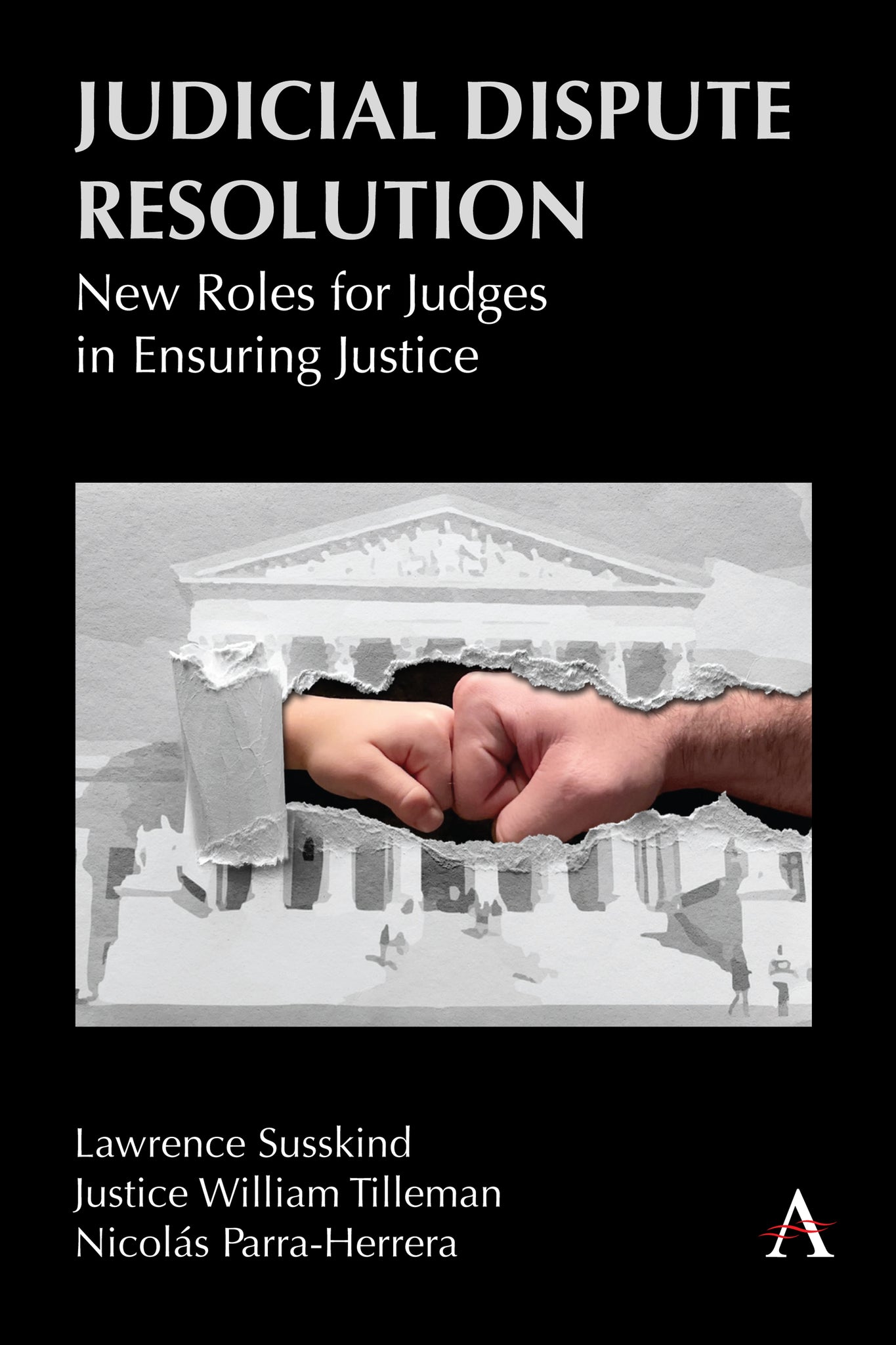We're sorry. An error has occurred
Please cancel or retry.
Judicial Dispute Resolution

Some error occured while loading the Quick View. Please close the Quick View and try reloading the page.
Couldn't load pickup availability
- Format:
-
16 May 2023

This book describes the ways in which judges, using JDR, have been facilitating problem-solving among litigants, and in the process, ensuring more just outcomes. JDR or judicial dispute resolution is similar to mediation (or alternative dispute resolution – ADR, as it is sometimes called), but it is provided by a judge, not a private mediator. Very little has been written about JDR, especially in Canada where it has been pioneered for several decades, because all the records have remained confidential. The story can now be told because the authors were given exclusive access to the records and the parties (including the JDR judges) in nine illustrative cases.
The authors provide a complete Teaching Appendix summarizing the JDR cases from the standpoint of a variety of legal specialties, while highlighting the differences between JDR and ADR.

LAW / Arbitration, Negotiation, Mediation, Arbitration, mediation and alternative dispute resolution, LAW / Courts, LAW / Legal Profession, Peace studies and conflict resolution, Legal systems: courts and procedures

“A deeply thoughtful treatment of judicial dispute resolution. The authors are clear-eyed both about the potential benefits of these evolving processes and about their limitations. The book offers compelling case studies, curated to provide readers with a thorough understanding of an opportunity for modern judges in all legal systems.” — Michael Moffitt, Philip H. Knight Chair in Law, Faculty-in-Residence, Clark Honors College, University of Oregon.
Foreword; Chapter 1: Introduction; Chapter 2: Judicial Dispute Resolution (JDR) around the World; Chapter 3: The History of JDR in Canada; Chapter 4: JDR’s Response to the Weaknesses of Litigation; Chapter 5: ADR v. JDR; Chapter 6: JDR Produces Satisfactory Results: The Divorce Case; Chapter 7: Advantages and Disadvantages of JDR; Chapter 8: Justice and Fairness in JDR The Motor Vehicle Accident with Pedestrian Case; Chapter 9: Types of Judges: Skill, Temperament, and Attitude in JDR Temperament in an Estate Dispute Case; Chapter 10: Confidentiality and Privacy in JDR; Chapter 11: Which Cases are Unsuitable for JDR?; Chapter 12: Juggling Complexity in JDR The Falling Rocks Case; Chapter 13: Divergent Interests of Adversarial Lawyers and Their Clients; Chapter 14: JDR and the Role of Precedent The Medical Malpractice Case; Chapter 15: The Importance of a Robust JDR Intake System; Chapter 16: The Chief Justices and How to Triage Special (SPEC) JDR Cases; Chapter 17: Specialized JDRs (SPECs) A Look at Three Cases and the Impact of the COVID-19 Pandemic; Chapter 18: How to Prepare for and What to Do During a JDR The Power Pole Case; Chapter 19: The New World of Online Dispute Resolution (OJDR); Epilogue: The Future of JDR; Bibliography; Appendix; Teaching Guide; Case Studies; 1. The Contaminated Land Case; 2. The Divorce Case; 3. The Motor Vehicle Accident with Pedestrian Case; 4. Temperament in an Estate Dispute Case; 5. The Negligent Land Transfer Case; 6. The Falling Rocks Case; 7. The Medical Malpractice Case; 8. The Power Pole Case; 9. The Well Fire Case; Index



